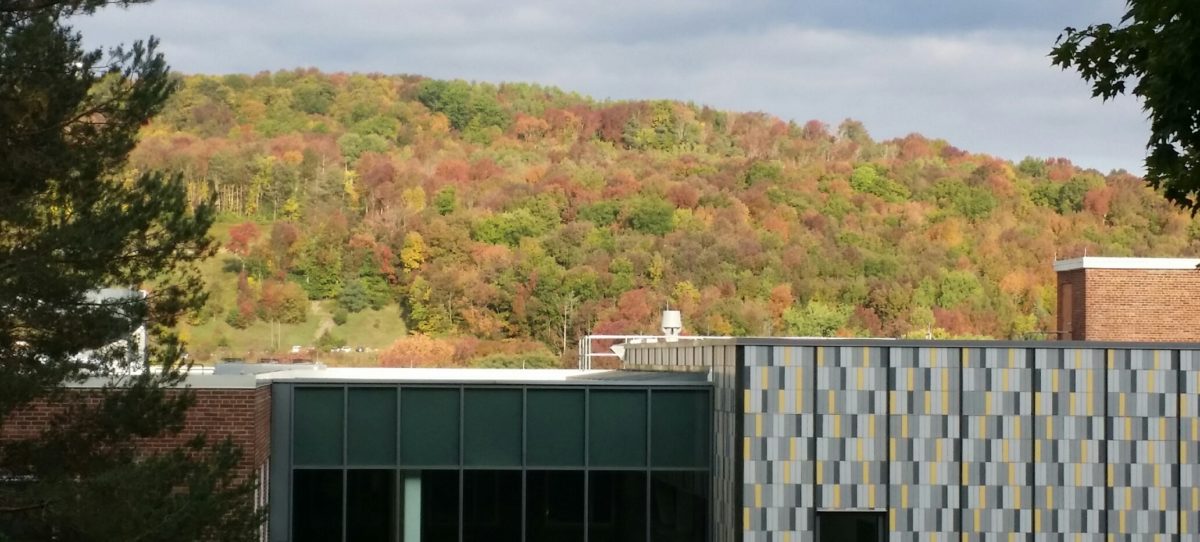Combining theory with experiential learning provides students with the best platform in which to foster their future growth as a community member – success is measured one AU Saxon student at a time.
“We only think when confronted with a problem.”
― John Dewey“I hear and I forget. I see and I remember. I do and I understand.”
― Xun KuangExperiential learning means “[b]eing actively involved in an experience, reflecting on the experience, conceptualizing the experience, and using what you have learned to make decisions and problem solve in order to apply new ideas gained from the experience.”
― David Kolb
INNOVATE – ENGAGE – IMPACT
ENTREPRENEURSHIP FINANCE
Private Equity & Venture Capital Guest Speakers:
AU Business students have telephonic access to guest speakers who are founders and senior management of “greentech” companies seeking pre-seed funding. Although representing various industries, these firms have similar goals that include monitoring, conserving, and mitigating the negative impacts of human activity on the natural environment. Some of these firms also create technologies that generate sustainable energy.
The guest speakers pitch their firms and technology to a group of investors, professionals (accountants, attorneys, investment bankers, and engineers), and researchers. Afterward, AU students then analyze and discuss the merits of the firm’s business model, financing proposal, and presentation.
Participants have included:
- February ’17 (Digital Direct Infrared Inc.: Thermal Infrared Imaging)
- December ’16 (Applied Biorefinery Sciences: Biomass Refining Services)
- November ’16 (a special panel discussion of firms and funders in the greentech investment space)
- Firms:
- Carbon XPrint, offers offsets to carbon footprint ton-by-ton of CO2
- Climate-IT, is a new crowd-funding equity platform for clean energy companies
- Funders:
- CoPower, streamlines up-front financing for clean energy projects
- Carbon Credit Captal, offers investments in clean energy projects in developing countries
- Sector Expert: Hilary McMahon, Managing Director of Hazel
- Firms:
- October ’16 (FutureAir: Indoor Air Pollution Monitoring)
- September ’16 (Smart Data Science: Big Data Analytics)
- July ’16 (Leviathan Wind Energizer: Wind Turbine Systems)
- May ’16 (AirGreen: Air Conditioning Systems)
- February ’16 (Actasys: Truck Transportation Aerodynamic Systems)
- December ’15 (EcoHub: Waste Separation Technology)
- November ’15 (Greensulate: Green Roof Technology)
- October ’15 (EcologiCiti: Urban Farming)
- September ’15 (Neptune Wave Power: Ocean Electricity Generation)
ENTREPRENEURSHIP TRAINING
Saxon Fly (Alfred University’s Drone Club):
Organized in the Fall of 2015 by faculty in the Inamori School of Engineering and the School of Business, Saxon Fly provides students across schools and academic disciplines with the opportunity to apply their classroom knowledge of engineering and business to a student-run club modeled as a drone technology business. Saxon Fly members gain leadership, communication, critical-thinking and problem-solving skills that directly translate into promoting life-long learning and career enhancement.
With the assistance of co-faculty advisors, the organization is run by a student-board of directors consisting of student heads of Accounting & Tax, Engineering, Legal, and Marketing departments who perform specialized tasks for the organization. Each school year Saxon Fly considers taking on innovative projects, and engaging with individuals and organizations that support its mission to encourage using drones to positively impact the community and environment.
Such projects may include:
- Engineering research;
- Science, Technology, Engineering and Math (STEM) outreach;
- Hobby use; and,
- Commercial use (Precision Agriculture; Construction; Inspection; and Photographic industries).
[embedyt] http://www.youtube.com/watch?v=SJre6XGU-Sc[/embedyt]
Importantly, Saxon Fly also serves to help Alfred University students obtain internships to jump start their careers. In his own words, Jason St. John, the club’s incoming President for the Fall 2017 shares the following personal experience:
This spring I accepted an internship at IGNITEU in Albany NY, where I will help their staff launch and run their accelerator program and other related activities.
I had my first interview with IGNITEU in early April 2017 over the phone. In that initial interview I talked about some of my work experiences, and the student clubs that I am a part of on the AU campus. The drone club came up in conversation when they asked if I had any leadership or entrepreneurial experience. I talked about the struggles and successes we have had with the club over the past 2 years of getting it to where it is today. In this interview, we talked about the club for roughly 15 minutes of the 40-minute interview.
In my follow up video conference interview with them I was introduced to the boss I would be working for in the summer if I received the internship position. We got about 20 minutes into the interview when they brought up the drone club and wanted me to share more of my experiences with it. This was a sigh of relief for me because I can talk about the drone club for hours. The topic of the drone club ended up taking about 30 minutes of my entire interview. They were fascinated not only by the drones, but that we as college students are attempting to harness this technology and form a business out of it. They loved the entrepreneurial spirit that the drone club has given me and I believe the interview went great.
Go Saxons!
Go Saxon Fly!
Appalachian Regional Commission Grant
The Appalachian region faces well known and significant challenges to its economic growth. The effectiveness of using experiential learning activities to teach technical skills and entrepreneurship is well documented. Faculty from Alfred University’s College of Business and Engineering School propose to educate the Appalachian workforce in drone technology and entrepreneurship in order to increase their current skills, develop new skills, and motivate the workforce to create new business opportunities. We then propose to offer agricultural field experiences to this workforce so that they can apply what they have learned with the goal of providing free data to the local farming community in an effort to increase crop yield and health.
The project is expected to engage students of the Engineering and Business schools in:
- Drone (UAV) Repair/ Maintenance
- Drone (UAV) Piloting
- Innovative Enterprise Entrepreneurship
The project was accepted by ARC effective September 27, 2018 and Alfred University faculty, staff, and students will immediately begin to implement the plan. We wish to thank all who have given us support, and we hope to continually partner with them in this exciting project.
ENTREPRENEURSHIP SUPPORT
Volunteer Income Tax Assistance program (VITA):
The VITA program offers free tax help to individuals who generally make $54,000 or less, and those with disabilities and limited English speaking abilities who need assistance in preparing their own tax returns. IRS-certified student-volunteers provide free basic income tax return preparation with electronic filing to qualified individuals.
Students who have taken ACCT371, ACCT471, or MBA657 have the opportunity to participate in efforts to assist local nonprofits in Allegany County and Steuben County to provide these much needed services to the community and to our student population.
With support from program supervisors, these student-volunteers learn to:
- Electronically file federal and state personal income tax returns;
- Interact with clients professionally;
- Review financial and tax documents;
- Use tax software;
- Apply tax theory and ethics to real-world situations; and,
- Take a leadership role in VITA projects.
Recommended Local Community Business and Other Links:
- Allegany County Department of Economic & Community Development
- Federal Aviation Administration: Unmanned Aircraft Systems (Drones)
- IncubatorWorks
- LaunchNY
- Small Business Administration (SBA): Business Plans
- The Southern Tier Startup Alliance
- Venture Capital
- Western New York Regional Economic Development Council
Recommended Global Community Volunteering Links:





